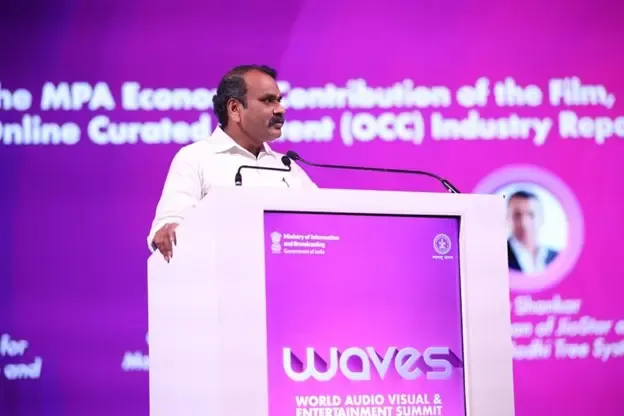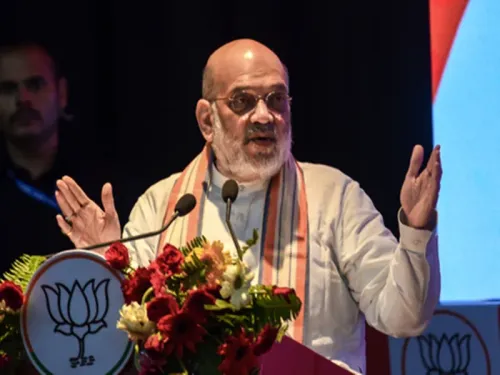Is the Centre Truly Committed to Creating a Creator-First Ecosystem in India?

Synopsis
Key Takeaways
- Creation of a creator-first ecosystem supported by government policies.
- Emphasis on intellectual property protections to safeguard creators.
- Indian cinema is gaining global recognition with films like RRR and Baahubali.
- 2.6 million jobs created in the entertainment sector.
- Over $60 billion generated in annual economic output.
Mumbai, May 4 (NationPress) The government is dedicated to establishing a creator-first ecosystem supported by strategic policies, production incentives, and robust intellectual property protections, stated Dr. L. Murugan, Minister of State for Information and Broadcasting.
Highlighting recent anti-piracy reforms, he emphasized the critical need to protect creators' rights in the digital landscape.
During the third day of the World Audio Visual and Entertainment Summit (WAVES) held in Mumbai, the Motion Picture Association (MPA) presented an extensive report showcasing the significant influence of India’s film, television, and streaming industries on the national economy.
During his address, Murugan praised the MPA’s global leadership and recognized the escalating impact of Indian cinema on worldwide audiences. He remarked, “Films like RRR and Baahubali illustrate that Indian narratives transcend language and geographical barriers.”
“Cinema serves not only as an economic catalyst but also as an essential diplomatic and cultural link. India anticipates enhancing its collaboration with the Motion Picture Association to jointly cultivate a globally reputable and secure creative industry,” he added.
Charles Rivkin, Chairman and CEO of the MPA, expressed his excitement regarding MPA’s enduring partnership with India at what he termed a “crucial juncture” for the nation’s entertainment landscape.
“India’s creative economy is on the brink of remarkable expansion, and the MPA is honored to accompany this journey,” Rivkin stated.
After revealing the report's key insights, Rivkin noted that the Indian film, TV, and streaming sectors have created 2.6 million jobs and generated over $60 billion in annual economic output.
He added that the MPA’s member studios are passionately committed to nurturing the development of India’s entertainment industry through investments, partnerships, and advocacy for progressive policies.
Rivkin highlighted the synergy between the MPA’s goals and Prime Minister Narendra Modi’s vision for a creative economy, emphasizing India’s unique strengths in storytelling, visual effects, and global content export.









